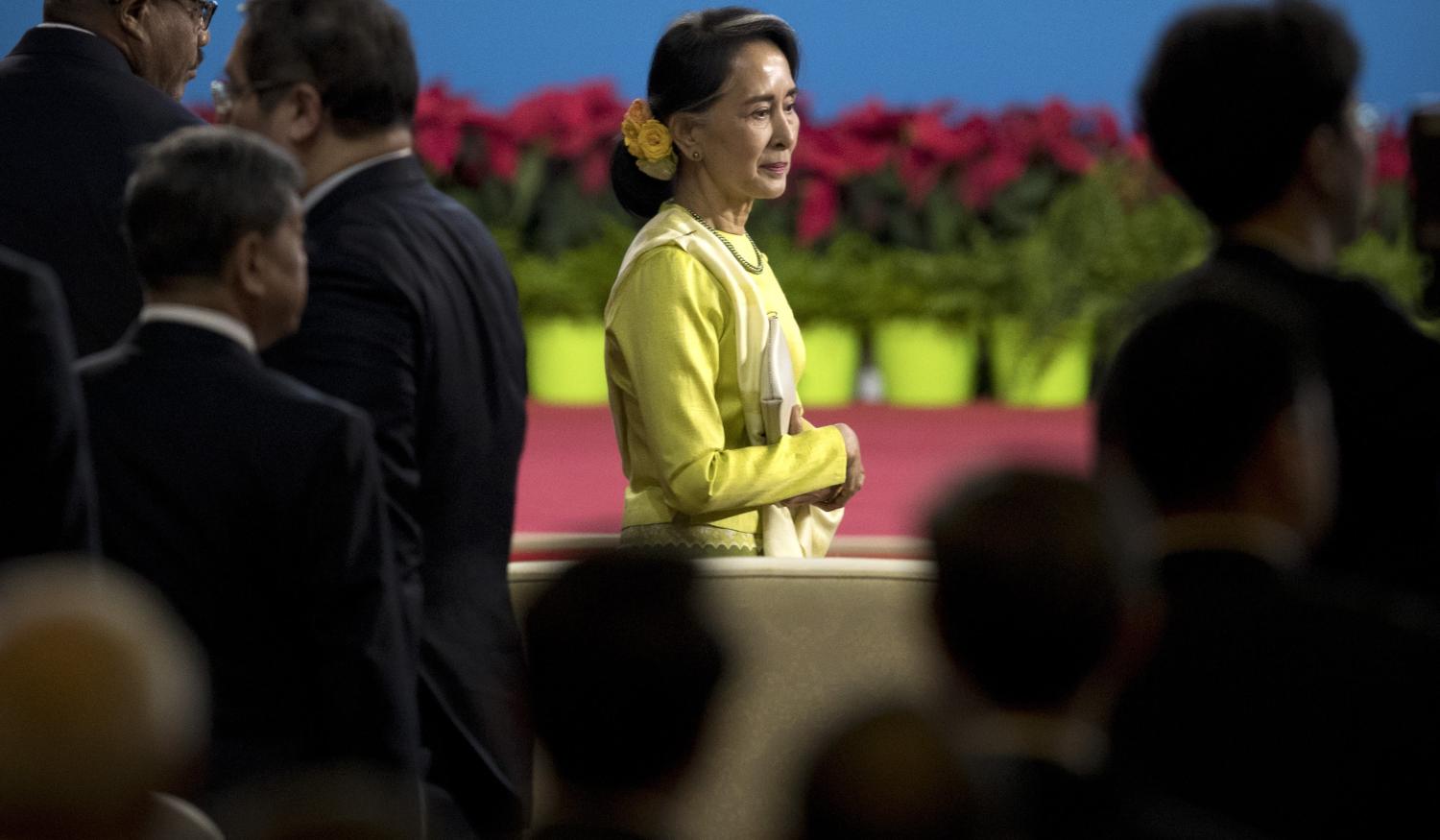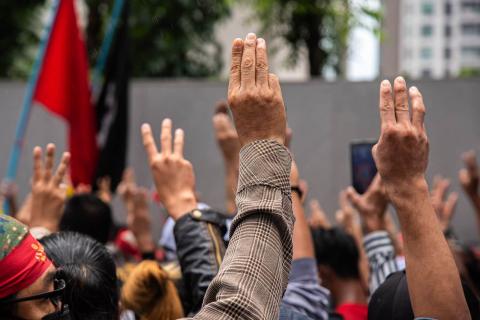Aung San Suu Kyi and her National League for Democracy party took power in Myanmar promising change, but are yet to deliver. The problems faced by the incoming administration were considerable, and now the Rohingya crisis has prompted some calls for this fallen idol to hand back her Nobel Peace Prize. But Myanmar politics are complex and ASSK's recent actions should be considered in the context of what she has long regarded as her number one priority: constitutional change.
In the face of growing condemnation, ASSK broke her silence this week. Her State of the Union speech addressed the Rakhine conflict, repeating the pre-election themes of peace, stability and rule of law. While the international community was largely underwhelmed by the speech (Amnesty International stated 'at times it was little more than a mix of untruths and victim blaming'), at home it met with support from those who believe ASSK had been portrayed unfairly by international media and say she was standing up for her country. And to achieve any of her major pre-election pledges, especially constitutional change, ASSK needs local support more than she needs international favour. This helps explain her strategy up to this week, and the careful nuances in her State of the Union speech; a public ‘silence’ is her best bet to keeping the support of the public and, importantly, that of the military.
Constitutional change featured heavily in NLD's election manifesto, and ASSK stated it was the 'the first priority' during her pre-election pledges. One of President U Htin Kyaw's first moves in the new parliament was an attempt to amend the constitution, proposing to change the number of votes required for constitutional amendment from 75% to 70%. This change, had it come to pass, would have given the majority NLD Government what it needed to make key constitutional changes, including diminishing the military's influence. It could also have meant ASSK would have been able to become President.
Section 59(f) of the constitution, drafted with ASSK in mind, prevents this. Before the 2015 election, ASSK said she would be 'above the President', despite the constitution stating that the President 'takes precedence over all other persons' in Myanmar. She appointed a trusted acolyte as President and created the position of 'State Counsellor' for herself to act as a proxy President's Office.
But while she may control the President, she's not the President.
It is hard to believe that ASSK is now merely abiding by the constitution or that constitutional change is really on the backburner. We should not underestimate her desire to rule Myanmar as her father did, and not as a de facto leader through a puppet. Past comments she has made also suggest ASSK believes that if she can become Myanmar's official leader, then she can implement the changes Myanmar needs.
This context helps explain her behaviour since the NLD took power and failed to achieve its 'first priority'.
For example, ASSK's reluctance to interfere Rakhine State and Rohingya-related issues helps keep her strong, predominantly Bamar-Buddhist, support base onside. It also avoids antagonising radical Buddhist elements such as the Ma Ba Tha, which, despite arguments that it had faded away, still influences sections of society and plans to become more political. Similar considerations were also arguably why the NLD chose not to field any Muslim candidates in the 2015 elections.
More broadly, her silence also helps keep other non-military political parties onside, especially in Rakhine State. And she will need their support in parliament if she pushes for constitutional change again. Perhaps most interestingly, ASSK hasn't challenged the military on its actions in the country's various continued armed conflicts, including in Kachin and Shan States. This is despite military offensives increasing in intensity throughout the NLD's peace discussions with armed ethnic groups – another stated 'priority'.
The military likely knows its actions will negatively affect the peace process, but has continued regardless. It has shown little respect to ASSK and the NLD, but she has not called them out, nor has she publicly criticised the Tatmadaw's actions. Doing so would publicly elevate the Tatmadaw's status and confirm it as the most powerful institution in Myanmar – something ASSK would not want, though her silence has arguably achieved this anyway. And ASSK needs the military onside for parliament and government to function properly, especially with governance already involving constant negotiation between the groups.
More importantly, to achieve constitutional change, ASSK needs over 75% of the parliamentary vote. The military's 25% bloc in parliament guarantees a veto if all military MPs vote together. She needs all non-military MPs onside and some military MPs to cross the floor. By going along with military decisions and policies (or staying silent), ASSK likely thinks she can chip away at the military establishment, potentially gaining enough trust and support for when the time comes. After all, why else would she put herself through this?
ASSK has made it clear she is a politician, and not a democratic icon. Politicians play roles and use situations to their advantage to achieve outcomes, even at the expense of others. Playing the role of humble democratic icon taking on the military regime worked – she gained local and international support, ultimately leading to her party's landslide election win in 2015. That she's now playing another role to achieve a different objective is not surprising and her actions suggest she views the pursuit of this objective as worth the pain and criticism.
But it is hard to see the Tatmadaw agreeing to changes that would minimise or remove its influence in Myanmar politics or society. Even if ASSK succeeds, it will likely be a Pyrrhic victory – her reputation may well be irrevocably damaged and other political contenders will have already targeted her support base, planning for their own political futures. If she fails, she will remain a fallen idol.

